Living Loved • Winter 2016 Current Issue
The Phenomenon of The Dones
By Wayne Jacobsen
This article is also available in Spanish: El fenómeno de los hasta aquí (the dones)
Sixty-five million Americans who were once regular attended a local congregation no longer do.About thirty-five million of those no longer self-identify as Christian, but over thirty-one million still do.This last group has been tagged “The Dones”, those who still seek to follow Jesus and find real community but have given up hope that the local congregation is still relevant to that journey.
What do we make of this phenomenon?As one who has spent twenty years helping people explore the life of Jesus beyond our conformity based system, here are some of my thoughts about helping people explore relationship with God and his people beyond our conformity based systems and how we might participate in this conversation in a way that champions the unity of all of God’s family.
The Secret is Out!
It won’t be a secret much longer: You don’t have to participate in a local congregation to live out a transforming relationship with Jesus, experience the wonder of Christian community, or to find meaningful ways to extend his kingdom in the world.
We’ve known for some time that people are leaving traditional congregations in droves.The statistics are irrefutable. Popular wisdom, and no small number of sermons told us that people who were not part of a congregation are not part of the church.Their salvation is suspect and they will whither away spiritually either because their spiritual passion would wane or they would get lost in the weeds of false teaching. And while that is true of some, researchers have now identified a large group of people who are thriving in their faith beyond the walls of any local congregation.
Dr. Josh Packard, calls them “The Dones,” in his book Church Refugees, The book is subtitled, “Sociologists reveal why people are done with church but not their faith” and helps us understand this heretofore unidentified group of believers. He describes the Dones as high-capacity people, who were deeply involved in their local fellowships until they become stifling to their own journey.For years they sought to help reform it, only to find their efforts and their passion stifled by a bureaucracy that resisted change.Finally, seeing no other way for their faith to survive, they made a conscious decision to leave the congregational model and find growth, fellowship and mission beyond it.
While many will celebrate the discovery that the church of Jesus Christ is broader and more robust than our local institutions can contain, others find the news disturbing and prefer to reject or ignore the study. In a recent webinar with the Dr. Packard much of the chat messages to the moderator expressed displeasure that they were giving voice to this research.Already one denominational bookstore chain has said they won’t carry the book, fearful of its influence on its congregations.
They either don’t believe its conclusions or want to ignore them as a threat to their own future. Because they define the church institutionally they can cast aspersions the faith of anyone who does not belong. That’s why many have responded to declining attendance by doubling-down on obligation to keep attending. Some religious leaders have a lot invested in marginalizing those who no longer participate in a local fellowship lest others follow them out the door.
Interestingly, Dr. Packard is not encouraging people to leave their local congregations.In fact, he attends one and hopes that this study will help pastors to innovate ways to engage their most capable members so they won’t feel the need to look elsewhere. Traditional congregations serve a valuable purpose where they teach people to live out their faith and where they incubate authentic community.
Twenty-five years ago I would have been shocked at this research myself. As a pastor, I thought our program essential to faith and saw people outside of it as bitter, lone rangers who were just miffed that they couldn’t get their way. One day through the betrayal of a close friend, I found myself for the first time outside the congregation. Of course I could have gone elsewhere, but found my heart hungering for a more authentic journey than any fellowship I’d been a part of was able to foster.And I discovered I was not alone and the others were not
That’s why Dr. Packard’s research does not come as a surprise to me.For the past two decades I’ve been living among those who have found a vibrant life in Jesus as well as community outside of any religious institution. They are passionate, caring, committed disciples who want to see the kingdom of God grow in the world. They have been scorned, condemned, and maligned by those who reject their faith simply because they stopped attending Sunday services.
If you care about the future of the church in the Western world, you’ll want to avail yourself of this book. Whether you are one of the Dones, or concerned about people leaving your congregation you’ll at least want to be understand why. My hope is that we will come to celebrate all the ways that Jesus is inviting people to himself and recognize the life of the church in its more informal settings as well as more formal ones.
The Labels that Divide Us
In a study called The Rise of the Nones, Pew Research put out their discovery a few years ago of a growing segment of the U.S. population that checks “none” as their religious preference instead of one of the historic faiths that people have identified with for centuries.
It was perhaps inevitable then that the rise of the “Nones” would give rise to the “Dones”, when it was discovered that there is a an increasing number of people living outside traditional “church” institutions who continue to grow in a relationship with Jesus and connect in meaningful ways with others.The Dones is the most recent label attached to them.They have been called revolutionaries, outside the box, free-range Christians, or the dechurched. Such labels serve the media’s need to talk about trends among specific groups and to market products inside those trends, but they really aren’t helpful to the work Jesus is doing in the world.
Our fallen nature constantly seeks to find identity and safety inside a tribe and labels are important to keep “my group” separate from “their group”.It works for sports teams, gangs, and even religious groups. Labels so easily polarize humanity into adversarial groups and especially with religious ones where we conclude that our group is not just different, but better.
So it’s not surprising that labels either flatter or denigrate depending on which tribe is talking. Sadly, most of this conversation about the Dones is either insiders talking to insiders about outsiders or outsiders talking to outsiders about insiders.For insiders terms like “dechurched”, or “church refugees” may seem fair but actually perpetuate the myth that religious institutions are the only reflection of Jesus’ church in the world. That is as unfortunate as it is untrue. Using “church” only for religious institutions is no minor slip. Most religious leaders want people to believe it so they won’t consider leaving too. Even many of the so-called Dones talk about having “left the church.”
Likewise those outside want to claim the titles that make them seem freer, more grace-based, or more powerful than their counterparts in more traditional settings.After George Barna published Revolution in 2006, those outside of traditional structures quickly latched on to it as evidence that they were more spiritually committed, and instead of opening a dialog for the whole family it only expanded the divide. I’m afraid “The Dones” will do the same thing if people wear it as a merit badge of deeper spirituality while others us it toquestion the sincerity of their faith.
Any title you wear be it pastor, best-selling author, or Done will do more to separate you from others, than it will help you recognize the incredible family that Jesus is building.Claiming a label works against his prayer that his Father would make us one. The community of the new creation levels our humanity—from hierarchy and from our narcissistic notions of being in a better group than others.We are all sons and daughters of a gracious Father and that’s all the identity we need. (Matt. 23)
But once again, we risk being divided into innies and outies as people and falling into the false dichotomy our flesh so craves.Whether you go to “a church” or whether you don’t is a distinction without a difference.What matters is whether people are following Jesus and being transformed by his love. What I hope comes out of this study of The Dones is those inside and those out recognize that the church is bigger than most of us would dare to believe and that his church takes expression wherever people engage each other with his love and purpose.
For those who claim that attendance at a local congregation is mandatory to be part of his church I hope they reconsider that false idea. Being part of his family is about following him not belonging to an institution. Over the last twenty years I’ve found incredible followers of Jesus both inside them and outside. I hope this research draws all those into a conversation where in and out becomes less important than loving and affirming his kingdom however it takes shape in the world.But it will take a significant number of voices across the Christian landscape to fight for a better conversation that include those.
Imagine my joy last week when I met with 25 pastors in Riverside County who wanted to discuss my book, Finding Church, and Dr. Packard’s research about “The Dones,” which will be profiled in his book, Church Refugees.Not only was I surprised that many were wiling to have the conversation, but also grateful everyone there approached it with graciousness and a desire to understand the trends we’re confronting today. There was no hostility for those differences, but a generosity to understand those who have left and appreciate their journeys as well.
I am convinced that people who truly know Jesus will want to reach across this divide, not exacerbate it. We don’t need identifying labels, especially ones that make us feels superior to others in the family. When Jesus becomes more important to us than finding identity in any particular tribe of it, then the conversations that most express his kingdom will grow in the world.Instead of demanding that others conform to our view of the church we will recognize her in the most surprising places as we find connection and fellowship with those who know the Jesus we know, even if they don’t follow the rituals we follow.
Then we won’t need labels to divide us.Brother, sister, and fellow saint will be more than enough and loving each other in a mutual celebration of Jesus himself will allow his church to flourish where we live.
Church Refugees is a Game Changer
If you read one book about the church this year, you’ll want to read Church Refugees. Dr. Josh Packard and Ashleigh Hope are sociologists and while researching the current trends of people’s church attendance made a surprising and unexpected discovery. They identified a significant number of Christians who no longer attend church services and yet are thriving in their spiritual life. They call them “the Dones” because they are done with the traditional congregation having felt it was stifling to their own spiritual journey.
To their surprise they discovered that most of them had not lost interest in their faith, faded out the back door, or preferred to watch football on Sundays. Instead they discovered them to be high-capacity Christians who were committed givers and deeply involved in leadership. They didn’t leave quickly or easily, having spent years trying to encourage change or simply find a way to get along. They eventually left because in all conscience they conclude that the way things are being done in their congregation threatens to compromise their faith. They sought community over judgment, mission over machinery, rich conversation over pat answers, and meaningful engagement with the world beyond moral prescriptions. While leaving is not easy as they suffered the judgments of former friends and colleagues they soon discover that there are plenty of resources for growth, meaningful connections with others on a faith journey, and ways to touch the world beyond the congregational system.
This book is a game-changer for how we perceive the church and understand those who no longer find our institutions helpful to their journey. It has the potential to obliterate the myth that our local institutions are the only or even the best way to engage the life of Jesus and his mission in the world.That’s not what the authors have in mind since they are both avid attenders themselves. They simply wanted to explore the phenomenon and seek to help congregations understand why these people are leaving and perhaps reconsider how to revitalize their institutions so they wouldn’t have to leave.
This is a compelling read that is hard to put down. The researchers mix their findings with first-hand stories from their respondents that will challenge whatever view you hold of the church. No doubt many will find it difficult to admit that passionate followers of Jesus are thriving outside our institutions, preferring the narrative that you can’t be a true Christian if you are not connected to a local congregation. The hungers, however, are real and if they won’t be served by our existing congregations people will look elsewhere. Obligation alone will not save these institutions.
For those who have already left you’ll find encouragement that you’re not alone in your desire for a more vibrant experience with God and his church and that it is possible to fulfill it in other ways. However, the terminology the authors use will make you cringe at times. Even the title, Church Refugees, is more than a little condescending to those who are no longer part of a traditional church. Calling them “The Dones” or the “Dechurched” doesn’t help either and you’ll find that language on almost every page.Just keep in mind this is a book by insiders, for insiders, about outsiders. It only uses “church” for institutional gatherings and posits those outside of such institutions as the “dechruched”. But it doesn’t dismiss them or the sincerity of their faith. I’ve not been an active participant in an institutional church for over 20 years, but I don’t consider myself a church refugee or that I am dechurched. I have never been more alive and engaged with the church Jesus is building in the world in so many expressions outside our traditional congregations. The church in Scripture was never a religious institution with weekend services and top-heavy bureaucracies. The church is the family Jesus is building in the earth and it cannot be contained or managed in any human organization. While it can take expression there, it can also take shape in many ways beyond it.
This may be the most important church book written in this decade. Whether you like what their research shows or not, Packard and Hope have done us all a service by giving us an accurate picture of the religious landscape rather than relying on our biases or experiences. What we do with them will have great impact on our engagement with the church.
If you share the hunger of the Dones but still hold hope for our Christian institutions, it will help you be a voice for change so those hungers can be served instead of frustrated. If you’ve found it necessary to leave you’ll find great encouragement in knowing there are others finding opportunities for growth, deep fellowship and mission beyond the programs of our congregations.
Hopefully it will help us all see the church as a bigger reality than our human conventions can contain, and affirm that what’s most important is whether or not people are following Jesus, not which building they go to on Sunday morning, or even if they go to one at all.
Why People Are Leaving
What does it take for someone to leave a congregation of people they have loved and served alongside often for decades?Why would they suddenly break away from close friends and lifetime traditions to wander into a lonely and uncertain future only to be accused of being selfish, bitter, or rebellious?
Except that it generally isn’t sudden at all, and not at all what they had hoped for.Yes, there came a time when they stopped attending, but none of “The Dones” I’ve met over the past twenty years left easily or suddenly.In fact most have wrestled with the decision for years in the face of some concern or unmet hunger.Initially they thought others around them would resonate with their passion, or be grateful if they identifie a problem that needed attention. To their shock, they found their repeated attempts to discuss their concerns or hopes fell on unsympathetic ears.
Try as they might to bring positive changes, they only meet resistance and eventually disrespect and frustration.“That’s not the way we do things around here.”Many give up trying to convince others, but their hunger continues to until sitting in the congregation becomes painful.After years of struggle they finally feel they have no other choice but to follow their hunger instead of quietly going along.As much as they want to stay with people they care so much about they find they can no longer participate in meetings that have become a detriment to their spiritual passions.
While the process is similar for most that I know, the reasons can be quite different.Recently I asked people on my Facebook page what it was that finally made it clear that they needed to leave their congregation.I got over a hundred responses from people that were consistent with the thousands of stories I have heard over the last two decades.
- Forty-two percent said they were worn out by the machinery and the need to serve it.Some of that is burn-out from having to do more than they had time or energy for, but for most it means that the cost it exacted wasn’t worth the fruit it produced. Rarely does anyone say the congregation was all bad except in the most abusive cases.Mostly they say the demands of the congregation began to displace their passion for Jesus and that scared them.
- Twenty-three percent said they no longer respected the leadership, either because they were dishonest, demanding or manipulative. This didn’t result from a bad confrontation or two, but a series of experiences that consistently eroded their trust and respect.
- Twenty percent they simply hungered for more authentic relationships, feeling the ones they had were too superficial or governed by pat answers instead of people really getting to know them and wanting to walk alongside them in their joys and struggles.
- Twelve percent wanted more of Jesus and his life than their congregation offered.The focus seemed to be on things other than helping people learn to experience the fullness of life in him.
- Three percent reported no dissatisfaction at all, but simply felt led by the Spirit to move onto a different stage of their journey.
Of course my pool of respondents did not include those gave up on God when they gave up on their church. Many do, seeing the failures of their institutions or its leaders as proof that God doesn’t exist, or if he does, at least isn’t engaged with them. It’s a tragic legacy of systems that often do more to perpetuate programs than demonstrate Father’s affection.
But for every person that has left, be they pastor or parishioner, there are others who are thinking about it and second-guess that decision every time they sit through another meeting that doesn’t address their deepest hungers.Many stay because of the relationships , others out of obligation no matter how painful it becomes. Actually they are “done” too, attending in body only and with decreasing frequency and it is only a matter of time before they stop as well.
Simply put, most of “The Dones” left because their spiritual passion could no longer be fulfilled where they were.So what may look like someone just walked out one day isn’t true.It is almost always a long, protracted process that even they resisted until they could do so no longer and still be true to the Spirit’s call inside them.
The process is hard on everyone. In the first few months many of those who leave are racked with guilt and second-guess their decision frequently especially if it is difficult to find others on the outside who share their hungers.And it’s hard on those they leave behind, who often feel rejected by those who leave.Harsh words and judgments are exchanged as each side seeks to convince themselves they are doing what’s right and want to convince the others for their own validation.Nothing will destroy friendships faster and lead to animosity and hurt that will spread throughout the community.
Those who have left are not your enemy. If they were your friends before, wouldn’t they still be your friend now even if you think are concerned for them? Wouldn’t loving each other be vastly more important than how we gather or don’t gather on a Sunday morning?Maybe if we were less threatened by their hunger we could celebrate their to find an environment more meaningful to their faith.
Certainly some who leave find their way back when they can’t find the community they are looking for.Most, however, after a year or two begin to find themselves connecting to others who share their hunger for more authentic and generous community in small groups or growing friendships without the need or expense of sustaining the machinery. They spend more time in conversations that nurture their faith and less time planning meetings and maintaining structures.
People who lose hope that the institutional model can provide a lifetime environment for community and growth may not be the death knell for the vitality of the church; maybe they are the hope that there’s more than one way the church takes expression in the world.
Your Attendance Is Not Required
I’m growing convinced that much of Christianity has become a human religion loosely based on the teachings of Jesus, while missing the point of them all.
Every week now I get links to blogs and articles of various pastors giving the 5, 8, or 12 reasons everyone needs to attend a local church each week. To prove their point, however, they have to make some of the most ridiculous statements that have no grounding in the life or character of Jesus. These conclusions are not just misguided, but actually destructive to people who want to grow in his life and joy.
This is not a personal judgment against them. I’m sure many of them are fine people, only trying to do what they feel called to. I also appreciate that this is a scary time for them as so-called church attendance is on the decline. The idea that someone can actually grow in their relationship with God, experience the life of the church, and share his mission in the world without being part of their congregation has to be a scary reality. Many don’t even want to acknowledge it is even possible, so they double down on the language of obligation and accountability. In doing so, however, they twist the Gospel so that it is no longer recognizable and all that’s left is for people to obey what they are told by leadership whose success and livelihood depend on that obedience.
There are many good reasons to gather regularly with other believers and share the journey of faith. It’s just that all those gatherings are not going on in Sunday morning services shackled by the bureaucracy of a religious system that often does more stifle spiritual growth rather than stimulate it. Many have found more engaging ways to share the life of the church beyond the walls of traditional congregations and telling them they must attend a normal service, falls on deaf ears once they’ve discovered that it isn’t true.
So if they hope guilt and obligation will win these people back or scare the ones they have into remaining, they are not only fighting a losing battle but disfiguring God and distorting the Gospel to do it. The life of the church is not found in obligation but in the joy of affection and transformation. Trying to discount the salvation of those who leave in hopes of reigning back in the faithful will continue backfire.
In the latest article I read Nathan Rose, a Missouri pastor in the Southern Baptist denomination says that skipping “church” meetings is dangerous to your health. He gives five reasons why in a recent article he wrote, Five Spiritual Dangers of Skipping Church:
- “You will miss out on God’s primary design for your spiritual growth and well-being.” What in the ministry of Jesus leads him to the conclusion that God’s primary means to grow to spiritual maturity is to attend a church service weekly, when he never conducted one himself, never taught his disciples how to do so, and assigned the task for our growth to the Holy Spirit who would dwell in us and guide us to all truth? When the Samaritan woman asked Jesus where she should worship, he made it clear that location is not the issue.What matters is that we do so in spirit and in truth. Living in the Father’s affection and responding to his Spirit within us is God’s primary design for our growth and well-being, not sitting in a pew on Sunday morning.
- “You disobey God.”As many do, Rose pulls out Hebrews 10:24-25 saying that the counsel “not to neglect to meet together,” is a command that can only be fulfilled in a weekly church service.It’s dishonest on the face of it. This is the only Scripture pastors have to seek to compel “church attendance” and it is misused at that. This passage wasn’t written to believers skipping out on church services, but to people under persecution who were wondering if avoiding association with each other would make it more difficult for the authorities to find them. The writer is telling them they have more to gain by the encouragement they have from each other than going it alone. Most Sunday services don’t even allow people to encourage each other, since the focus is on the platform. Hebrews 20 is not talking about attending a meeting; it is about staying connected to others and not trying to make it alone. Honestly many of our institutions today do more to inhibit that connection than encourage it.
- “You make a statement to the world that God is not worthy of worship…, which is the attitude and conduct of unbelievers, not God’s people.” So if you don’t come to “worship” you are no longer one of God’s people. The judgment here is frightful. Worship is not a song service or a sermon, but a live lived in God’s reality and his affection. How we see him and how we love and respect others either brings glory to him or disfigures him. Sitting in a pew on Sunday morning is not a statement of how important worship is to you unless that’s the only way you understand worship and then you are spiritually impoverished the rest of the week. Our lives worship him whether we’re on the job, enjoying his creation, or serving someone in need.
- “You can’t minister to anyone.” Really? All the ministry that God wants to do in the world can only happen under a steeple on Sunday morning? That would be laughable if it weren’t so tragic. Jesus never ministered in a “service,” but on the street where he encountered people. Real service is not sitting in a pew so others can hear you sing and you can show support for the pastor. Ministry is about loving and helping people you know or come across as you go through life. They can be in your neighborhood, at work, in school, or across the world.
- “You skip out on a foretaste of heaven.” If Sunday morning services were really a foretaste of heaven, no one would want to miss them and you wouldn’t have to obligate them to be there. In many cases it’s just a repeated formula often laced with guilt and condemnation, as was the entire piece written by Rose.
What bothers me most is not that they want people to come to “their church”, but that they see obligation as the reason. They make the same mistake the Galatians made.By turning the promise of God into an obligation they distort the gospel, twisting the joy of an invitation into God’s life into demands and threats. It has the underlying psychology of “misery loves company.”We are not here because we enjoy it and God works in us, but because God says we have to.Please!The kingdom is the pearl of great price, not the castor oil of spiritual maturity.
Paul, the apostle, encourage us to live in freedom and let “no one” defraud us by telling us where we should go, what we should eat, or what we should wear. People who try to tell you what you should do, rather than equipping you to live fully and freely in Jesus, have lost connection with the Head.
I honestly feel sorry for those who can’t see the reality of Christ’s church beyond their own congregation or the congregational model itself. They would perhaps do better to take an honest look why people who were committed members of their congregation found it necessary to leave. Badgering them with accusations and demands will never fulfill the work of the kingdom. Maybe it is time for them to ask just how much their gatherings reflect God’s nature and reality. Those congregations who honestly seek to help people live in the reality of Jesus’ freedom and transformation need not be threatened that Jesus is also working outside their borders.
In fact if they put his kingdom first, they will rejoice that he does.
I’m looking for 35 Million People
Nothing breaks my heart more than meeting someone who invested years of their life in religious service and for some reason never discovered how real God is and how deeply he loves them.
The latest research by Josh Packard, author of Church Refugees, shows there are thirty-five million Americans who have left their religious institution and abandoned their belief in God at the same time. I’m fine with them leaving. Religious institutions can often impede our spiritual growth rather than encourage it. Nearly thirty-one million other Americans have left their religious institution and continued to explore what it means to know God and share his life in the world.
But for those who left not knowing a God worth loving, my heart goes out to you.That means despite all the all the meetings you attended, prayers you offered, and good deeds you have done, you never came face to face with the most endearing Presence in the universe. You never recognized his voice wooing you, or recognized his hand at work in your life.
I understand why you would miss that. Insecure religious leaders who try to rule with an iron fist or simply don’t know him themselves, and legalistic religious traditions that substitute rules and rituals for helping connect people to the transcendent God, can be barriers to the very faith people want to explore.Some say you can’t have God without religion; it’s a package deal. If you want to be one of his you have to jump through someone’s hoops to prove your sincerity.
But those who say so are usually trying to build or sustain an institution for their own purposes. It isn’t true. While some congregations can be very helpful in helping people discover God’s reality, many others are a deterrent. Jesus didn’t start an institution, or a religion, for that matter.He came to reveal to us what it would be like to live in his Father’s reality—how his love would change us and how our loving others in the world would let his kingdom unfold around us.
That’s why the Apostle Paul didn’t try to win people with “wise and persuasive words”, because he didn’t want peoples faith to “rest on human wisdom, but on God’s power.” If your spiritual passion was only based on following someone else’s teachings it wasn’t meant to last anyway. It was always going to fail you.
So I’m looking for you
If I could sit down to lunch with any of these thirty-five million people, this is what I would want you to know:
- Realize religious obligation is a conformity-based system that operates by fear and manipulation and that’s why it could not promote the love of God growing in your heart. But don’t give up. Look elsewhere, mostly with someone who already knows him.Walking with God as he really is, is the greatest treasure life offers.
- Separate the failures of religion and religious leaders from the reality of God. Jesus did. The Pharisees had God wrong, which is why they didn’t understand his love for sinners, or his refusal to conform to their traditions. It is why they killed him.
- Consider the possibility that you were given a disfigured view of God especially if you’ve come to see him as an angry tyrant wanting to rule the world through terror. He is actually a gracious Father who loves you more than anyone else on this planet ever has or ever will.
- Recognize where God is already reaching out to you. That voice inside your head that invites you away from the anxieties of this life is his drawing you to himself. Those transcendent moments when you knew you were not alone in the universe and that Someone endearing holds you and this world in his hands were his doing, nudging you toward the relationship he desires with you.
- God has not been the cause of your best friend dying, or financial difficulties, and your disappointments in life.He wasn’t punishing you or them for some broken place in their lives. This world is out of sync with its Creator and the effects of that touch us all with sin, sickness, and pain.God is not its cause. He’s the rescuer in the story, inviting us away from the mayhem and into the knowing of him.
- Ask him to reveal himself to you and to send you someone who can help you learn to follow him.
All that Jesus said was true. There is a place for you to be at home in God, and for God to be at home in you.
Seven Markers That Will Help You When You’re Done
A Thrival Guide for Those Who Find Themselves Outside of Conventional Congregations
According to the latest research people are leaving the local church congregation in droves. Many do so questioning whether God even exists, but many others continue to passionately follow Jesus convinced that the institution they belonged to was at odds with the spiritual passion growing in their heart. They may not have even understood why, but something inside continued to draw them toward a more authentic relationship with Jesus and a freer environment to share his life and love with others.
Many who have given up on the traditional congregation were once leaders, volunteers, and major contributors. They grew weary of the programs and expectations that neither encouraged their journey nor cultivated the kind of community they sought.Leaving is never easy and most do it only when other options are exhausted.
Finding yourself outside the congregational model can be incredibly disorienting for a season.Family and former friends question your faith or make you feel guilty with accusations of bitterness or selfishness.All the markers you used to gauge your spiritual health no longer make sense. Some question their own sanity and even more so as they are increasingly isolated from the only friends they’ve ever had.
If you’ve left your congregation for similar reasons, what do you do now? As I’ve watched people go through this transition the ones who navigate it most freely begin to embrace a different set of realities, which not only allow them to survive outside a local congregation, but actually thrive in learning to follow him, in sharing fellowship with others, and in being part of God’s purpose in the world.
First, take your time. You’ve been invited on an amazing journey that will take years to sort out. Many people rush to join another congregation or start their own house group to fill the void but only end up recreating what they had left. Resist the urge to find another group right away or create one. This is a season to draw closer to God and let him fill the void. There will be time for more connections later when it’s not a response to a driven need, but a freedom to embrace the gift of community that God wants to give you.
Second, don’t force your journey on others.You don’t have to tell people, “I’ve left the church” or judge as less spiritual those who still go. This isn’t about judging others or making outlandish conclusions about the future you can’t begin to sort out yet.Simply follow Jesus however he leads you and be gently honest with those who ask you why you’re not doing the things you used to. Remember, you’re the one whose changed here, they are just doing the things you’ve always done, believing they are obligated to do so.They will be threatened by the change you’re making, and you can help disarm that by letting them have their own journey. Don’t try to change them, or to fix them. You can’t until the Spirit awakens the same hunger in them that he has in you.
Third, lose your need to be validated by others. Religion works by establishing a set of expectations and rewarding those who conform and punishing those who do not. The greatest freedom in this journey is to let Jesus to break that cycle so that you can find your identity in his love for you. Trying to convince others how right you are will only harden them and destroy your friendship with them. Trying to justify yourself will not allow you to love others nor will it lead you to the freedom from the tyranny of other people’s opinions of you.Be gracious to all and let his affirmation of your life and experience be all the validation you need.
Fourth, learn the beauty and rhythms of love.Following ritual and rules that others demand of you is still following law, even if we call them “New Testament principles.” God doesn’t transform us through obligation or meeting the expectations of others. The reason why many of us grew frustrated in religious settings is because they made promises to us they couldn’t fulfill. The harder we tried the emptier we felt. God has been inviting you to live in a new creation where his love transforms us in the deepest part of our soul. Over this season you’ll learn to see through the manipulation of obligation, accountability, guilt, and fear and into a different rhythm that will allow you to live more at rest, aware of others, and free from the pressures of this age.Instead of doing what others think you should do, you’ll be freer to discern his work in you and find yourself embracing the realities of grace, forgiveness, freedom, and generosity. It all begins as you ask him to show you how deeply loved by God you are, then let him show you. This is the trailhead that will lead you to greater freedom and fullness.
Fifth, watch your trust in him grow. Many are surprised to discover how much of their religious life was driven by fear—of God punishing them, of going astray, of what others will think, or of failure. As you are more in touch with his love and delight in you, even when you’re struggling or doubting, you’ll find that your trust in his goodness will begin to grow. You’ll realize he’s for you, not against you and that your own efforts were never going to produce his life in you. Now you’ll discover the joy of cooperating with his work in you and find yourself more relaxed, more aware of his nudges and insight, and less inclined toward destructive and hurtful actions. When Paul talked about the righteousness that comes from trust, this is what he was talking about. Where we trust him we won’t try to save ourselves or force our way. Now we can know what it is to be content in him whatever life brings to us because he is walking with us through it.
Sixth, cultivate friendships with others. God’s love working in you will free you to love each person God puts in front of you. Take an interest in them, whether they already know God or not, and watch as they begin to pen up with their concerns, struggles, and joys. Look for ways to encourage them as God gives you insight to do so. Get to know people you already know from work, school, or your neighborhood. Contact people in your address book and take them out to lunch. Where the relationship becomes relaxed, authentic and mutual, make time for those friendships to grow so his community can take shape around you.
Seventh, let God expand your view of his church. Most people think of the church as a specific group or meeting at a set time and place and if you’re not there you are not part of his church. They are made to feel guilty and isolated as others withdraw from them. It’s easy to feel as if you’re the only one weary of the religious institution. But you’re not. The latest research shows you are one in about 31 million adults in America who do not belong a local congregation but are still actively looking to follow Christ, which is about the same number of people who do belong. That means one in every seven adults are on a similar journey to yours and there are 7 million who are “almost dones” who still attend but are there in body only. Does that mean the church is failing?Only if we look at our human attempts to manage it. What you’ll discover is that Jesus’ church was never meant to be an institution, but a growing family who are learning to walk with him and who are learning to share his life and love with others. Real community flows from friendships not meetings, which is why Jesus spent time with the people in his life in more informal settings. As we come to see his church as a reality outside of human control, then you can embrace her reality however she takes shape in the relationships and connections around you.
Learning to live in his freedom and joy is the fruit of a process that takes a significant period of time in our lives. Don’t rush the process.Learn to embrace him and relax in the process and you will discover that “something more” that your heart has been seeking.You’ll find yourself in meaningful conversations that will deepen your own faith and encourage others to find more reality in theirs.
It is my hope that those who are done with religious institutions, don’t go off and create their own, but learn to live differently in the world and then be able to see the church Jesus is building taking shape right around them.











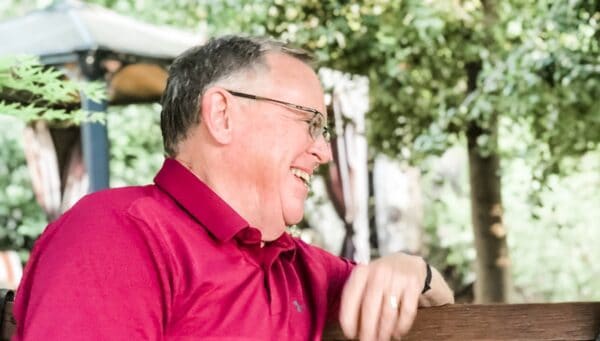


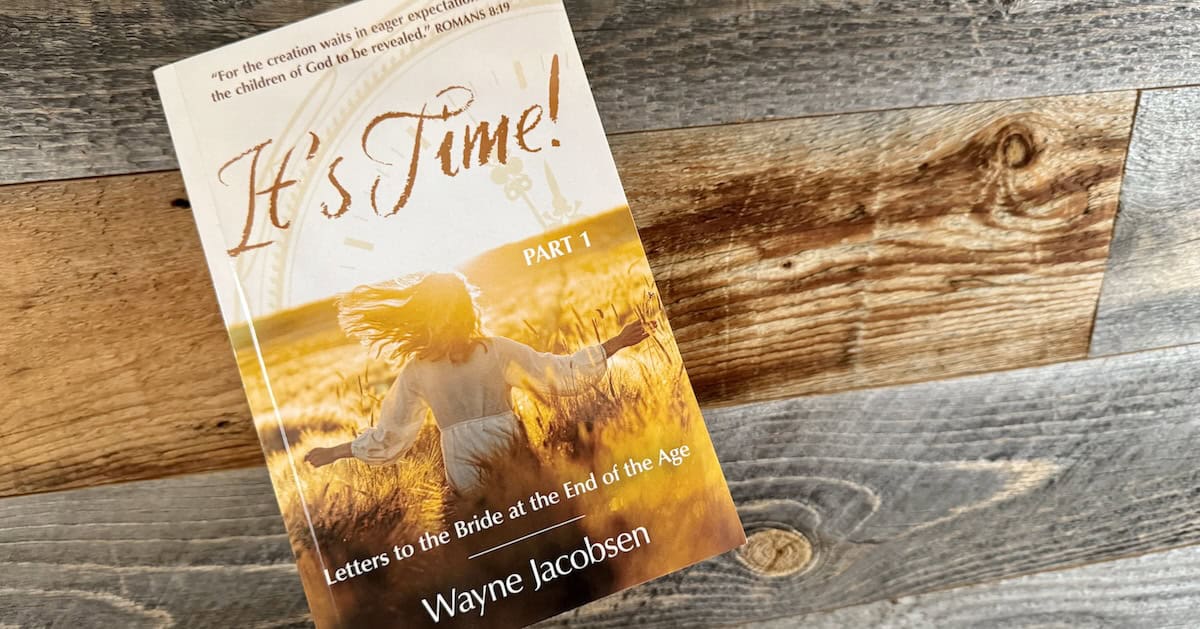
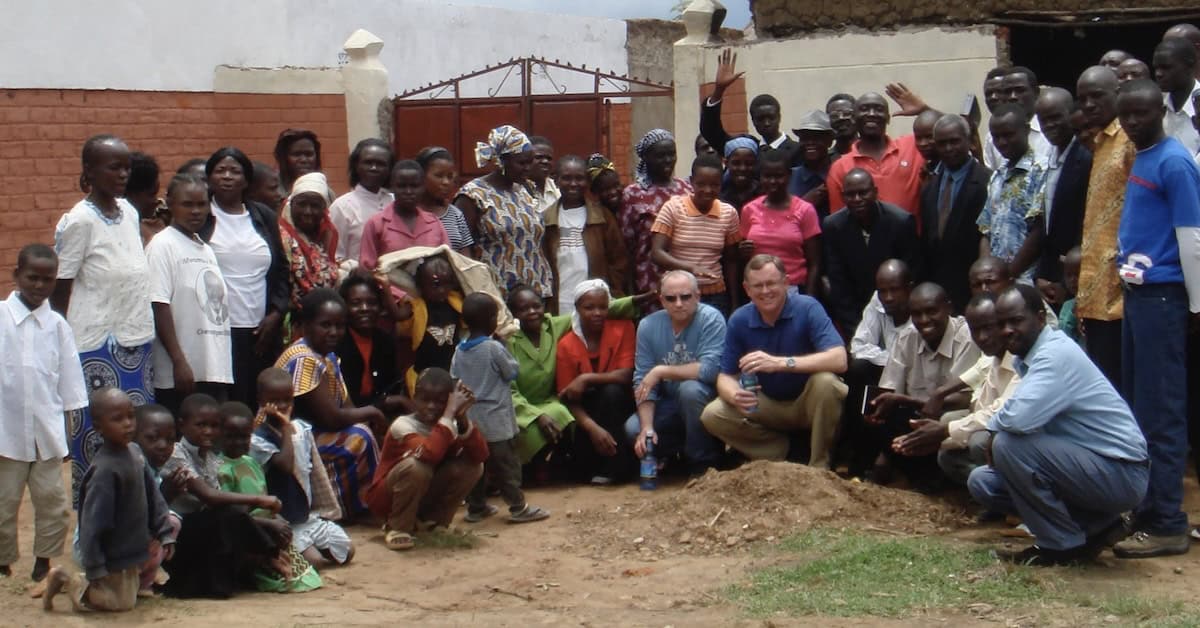

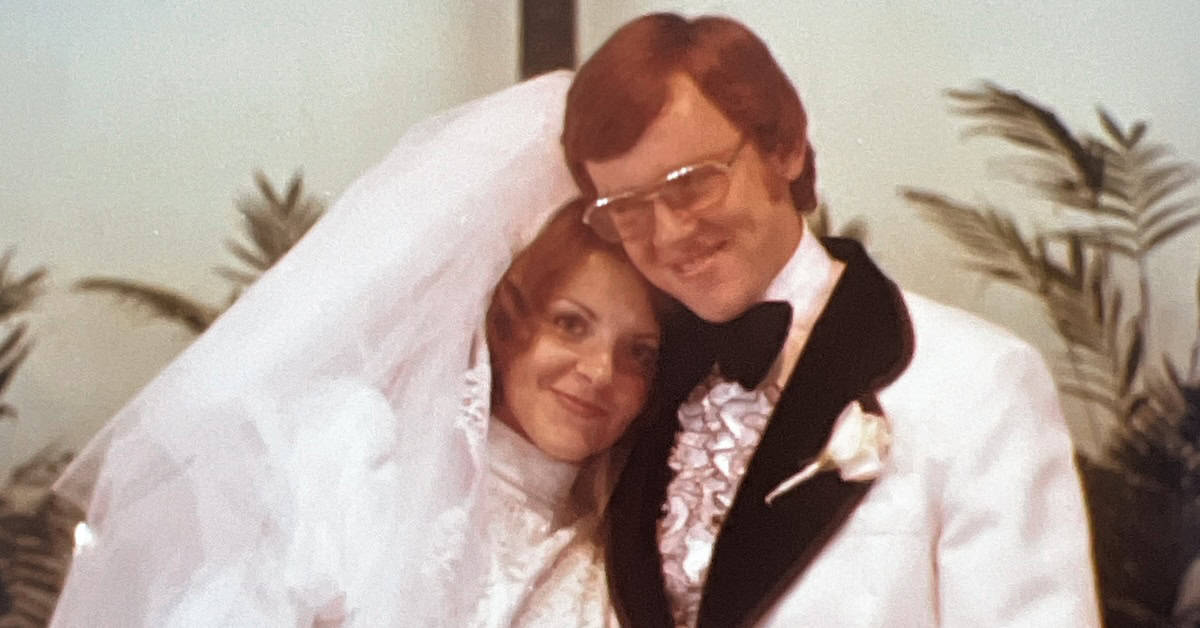
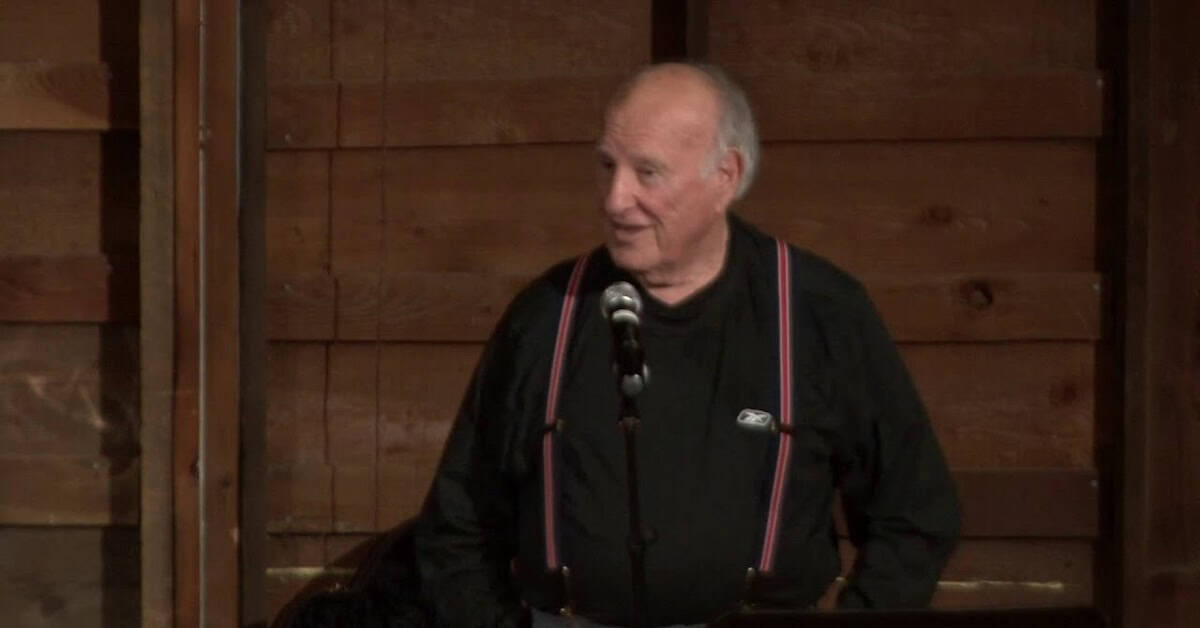


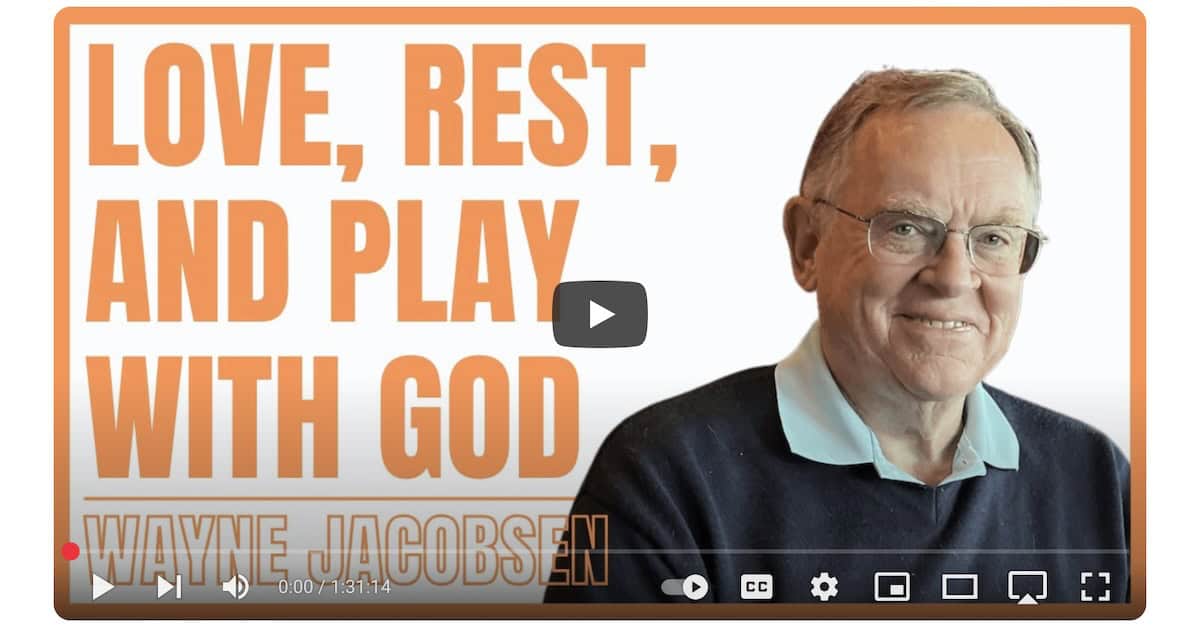


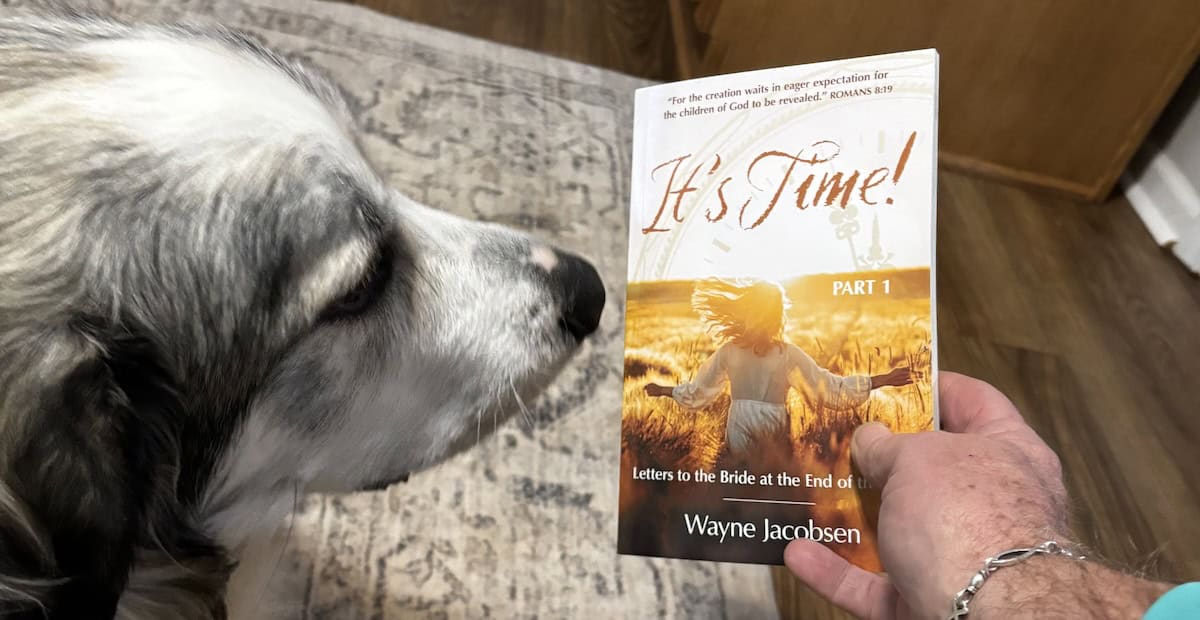
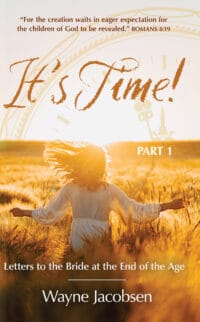


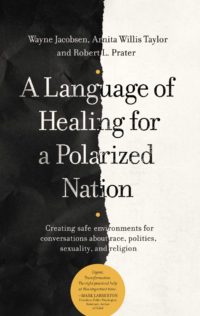
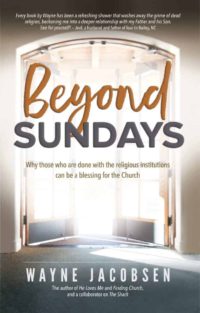
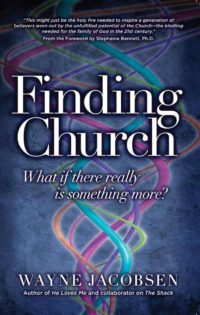









 Few men have written so eloquently about the centrality of Christ and the importance of relationship like T. Austin-Sparks.
Few men have written so eloquently about the centrality of Christ and the importance of relationship like T. Austin-Sparks. 
